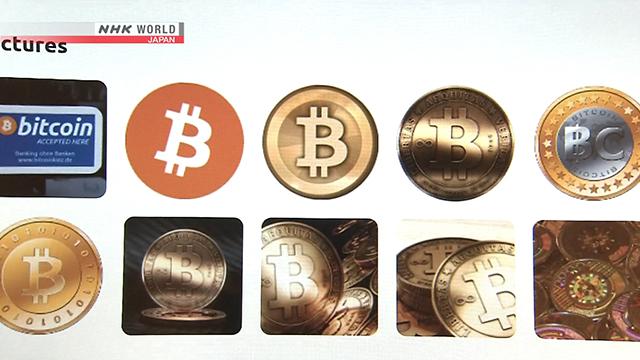Telecoms operator Internet Initiative Japan set up a new company earlier this month. 18 major firms will invest in it to create a virtual currency exchange. They also plan to eventually launch payment services.
Participants include major banks Tokyo-Mitsubishi UFJ and Sumitomo Mitsui. Delivery firm Yamato Holdings and electronics retailer Bic Camera are also on board.
The new exchange is scheduled to begin operations in October. Users will be able to trade digital currencies with the Japanese yen.
This latest move involves leading companies from a variety of sectors aiming to offer comprehensive services for digital currencies. All eyes are on whether the new venture will change Japanese consumers' deep-rooted preference for cash and promote use of digital currencies.
In Japan, an increasing number of shops are accepting virtual currencies as payment. Major banks are also moving to jointly set up their own digital currency.
In announcing the venture on January 25th, Internet Initiative Japan chairman and CEO, Koichi Suzuki, said a cashless society has already emerged in China, and that Japan should not fall behind the global trend.
Suzuki said member firms will tap their technologies to build a neutral platform that can deal with various digital currencies.
He stressed that businesses from many different sectors joining hands will give a much-needed boost in promoting such currencies.
Why are leading firms taking part?
Leading businesses from a wide range of industries are taking part in the venture apparently out of a sense of urgency.
The use of cryptocurrencies such as Bitcoin is expected to increase further. Convenience is key to having them take root. It should be easy for consumers to exchange those currencies for cash or for other digital currencies and to use them to pay at shops and restaurants.
But such a push for cashless transactions, or digitization of currencies, would be difficult for a single company to undertake. The companies taking part in the venture may be hoping that doing so will create momentum to adapting to the digital era.
Member companies plan to allow customers to pay with digital currencies for their services. They will also eventually apply the core technology for digital currencies, blockchain, or encrypted online ledgers to their in-house systems as well.
Challenges to clear
Digital currencies are known for their convenience in making quick and relatively cheap money transfers. But there are several issues that must be overcome before they are widely recognized as a safe means of settlement.
Blockchain technology makes it possible to send remittances both domestically and overseas far more quickly than cash transfers, and at much lower costs.
But Bitcoin, a leading virtual currency, has become a target of speculation. Bitcoin prices have fluctuated wildly since last year.
Leading virtual currency exchange bitFlyer says the price of Bitcoin soared to a record high of 2.2 million yen, or about 20,000 dollars, in mid-December. But it fell to about half that level only a month later.
Other virtual currencies such as Ethereum and Bitcoin Cash also fell around the same time.
Virtual currencies with no official issuing bodies face such fluctuations that would stop them from taking root as a means of payment.
Some banks that plan to issue their own digital currency aim to overcome that problem by fixing its exchange rate with the Japanese yen.
Ensuring the safety of the system appears to be a key in promoting the use of such currencies.
